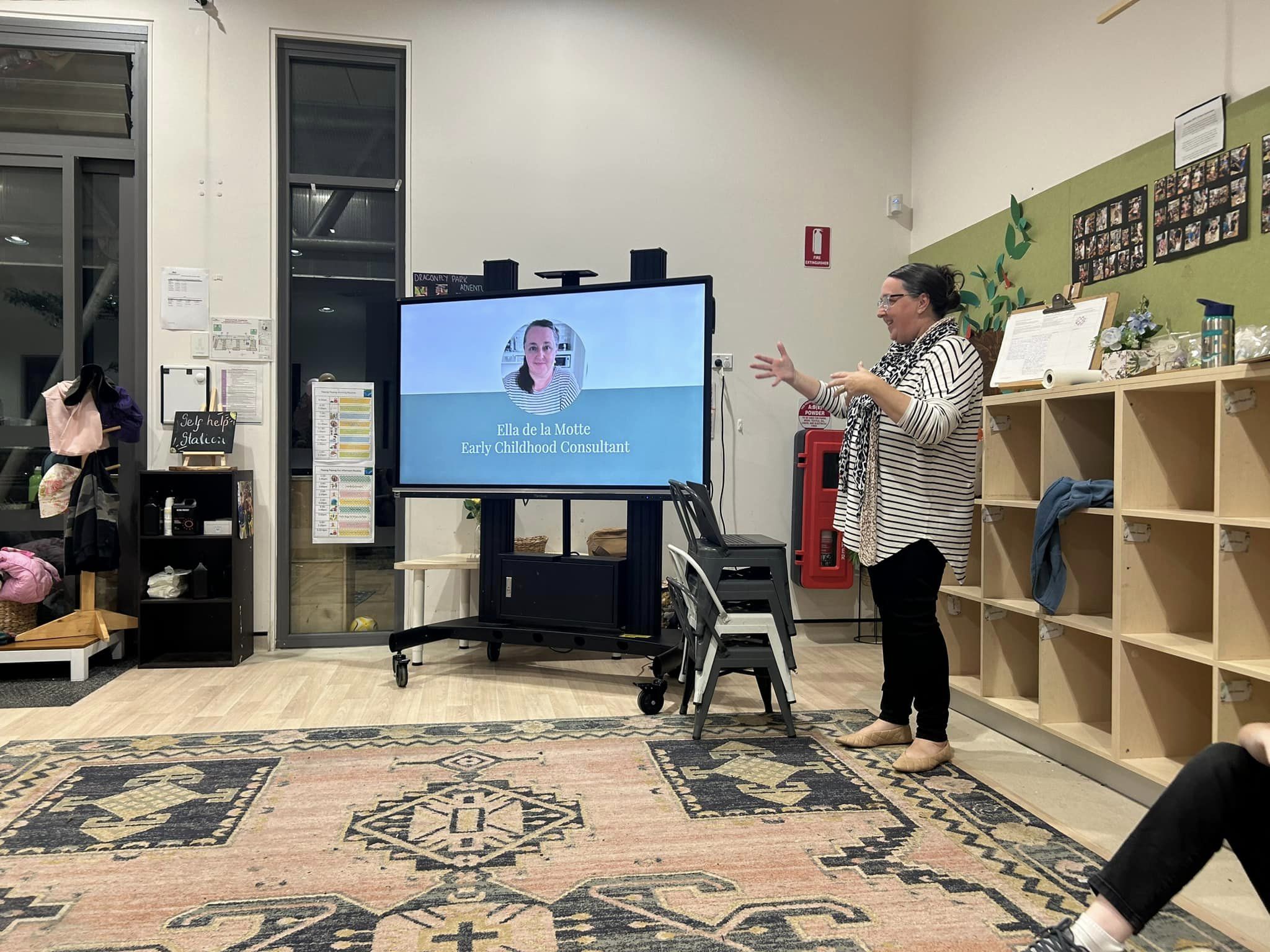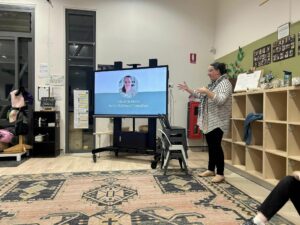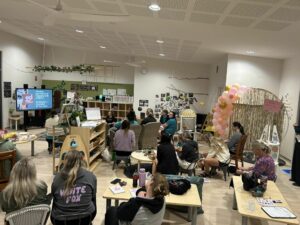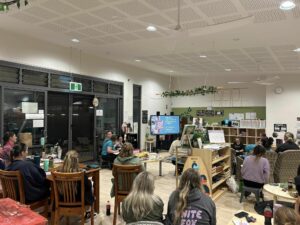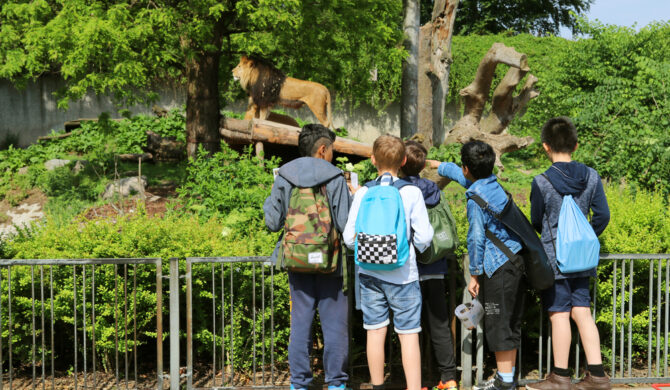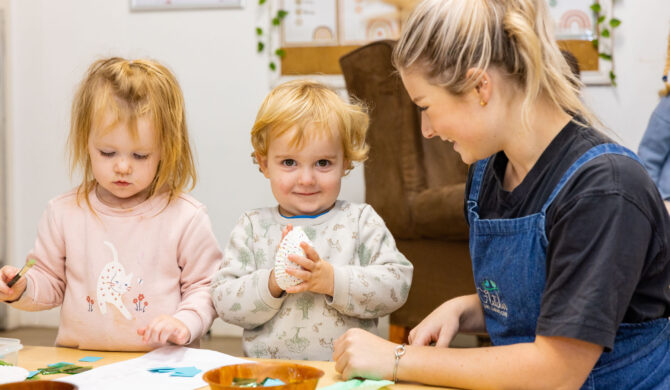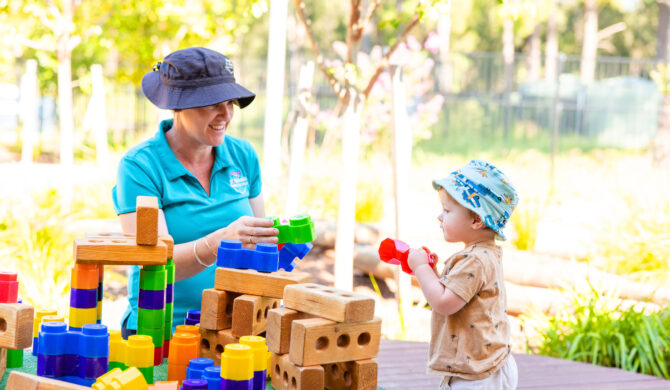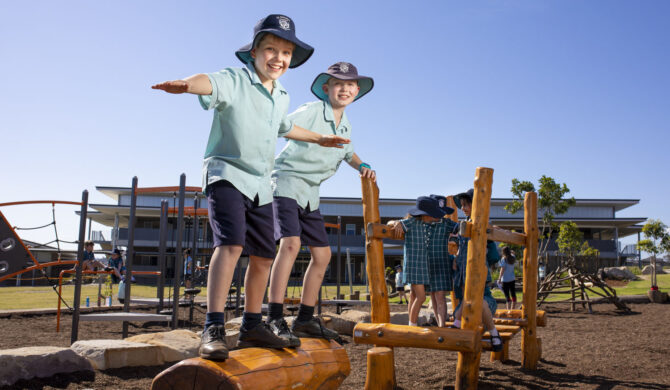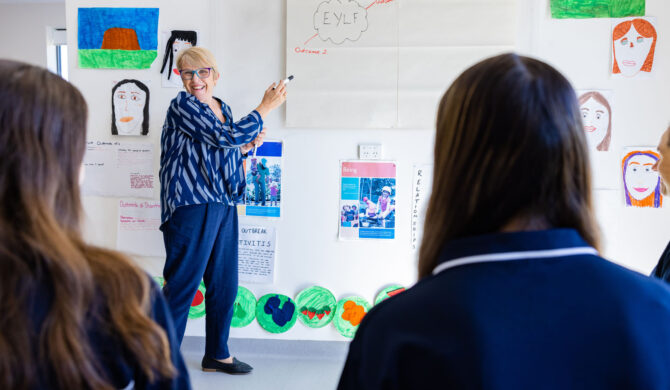Ella led an engaging workshop on supervision and engagement, delving into its significance for both educators and learners. Here are some of the key learning takeaways:
- Promoting safety and wellbeing: Effective supervision ensures the safety and well-being of young children and simultaneously fosters a sense of security in the learning environment.
- Optimal learning environment: Engaged supervision aids in maintaining a structured and focused learning environment, minimising disruptions, maximising instructional time and providing tailored guidance as needed.
- Behaviour management: Active supervision enables educators to quickly and effectively support children in dispersing any conflicts, encouraging them to use positive behaviours when conversing and interacting with others. Ultimately, this promotes a positive learning environment and culture.
- Enhanced engagement: Through engaging with the educators, young learners are encouraged to actively participate in the learning activities, fostering curiosity and enthusiasm. By reading the reactions to the learning, educators can tailor their interactions to meet individual children’s needs, supporting differentiated learning and development.
- Developmental support: Correct supervision and engagement provide a balanced and responsive educational experience that allows educators to identify and nurture each child’s strengths and areas for improvement, fostering holistic growth and development.
- Building relationships: Consistent and meaningful supervision helps build strong, trusting relationships between educators and children which provides the foundations for effective teaching and learning.
- Promoting independence: Whilst supervising, educators can encourage learners to try familiar and new tasks independently offering support as needed. Not only does this help build confidence and self-reliance, but it also allows children to feel safe within their learning environment.
Our educators had plenty to take away from the workshop to help them enhance their teaching techniques and strategies. In this group learning setting, our educators can not only apply these learnings but also take the time to highlight the areas where their colleagues thrive and the areas that they can look to improve on.
This shared learning environment gives our educators time and space to collaborate and strengthen comradery with their peers and demonstrates their collective commitment to continuous learning and growth.

